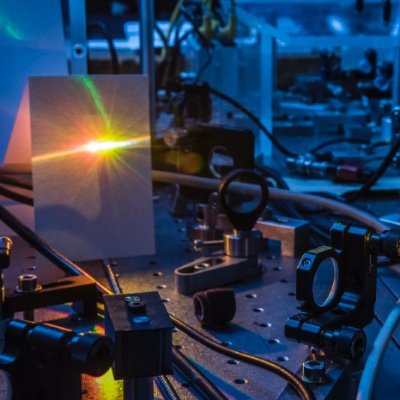Research
In the multimode quantum optics group, we study the fundamental quantum properties and applications of light with many degrees of freedom (i.e. modes). Our activities are both theoretical and experimental, and the applications we consider range from quantum-inspired metrology and imaging, all the way to quantum information processing. We are mainly interested in the continuous-variable approach to light, which means that we rely on measurements of the electromagnetic field itself through homodyne detection.
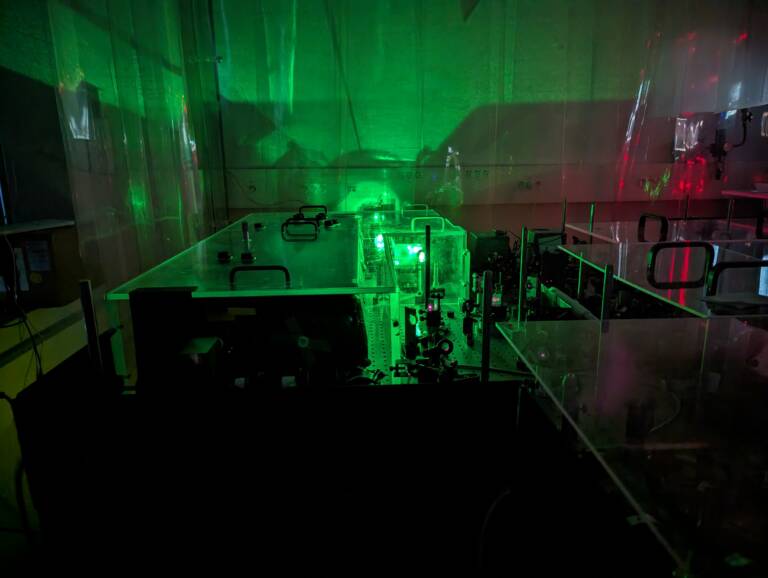
Femtosecond Quantum Information
Multiplexing in time and frequency allows us to create large and versatile entangled states using quantum frequency combs. We use pulse shaping techniques to implement mode-selective measurements and operations (such as photon subtraction).
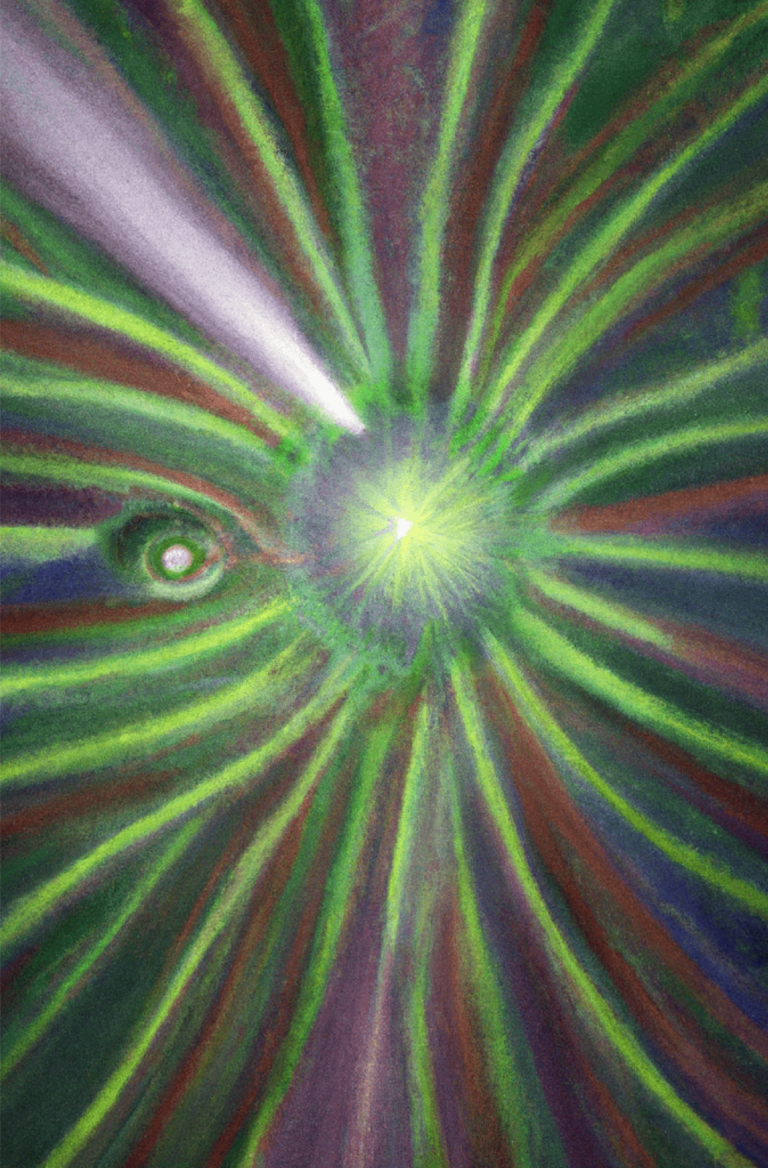
Quantum Complex Networks
Replicating complex networks in a scalable quantum platform is a formidable opportunity to learn more about the intrinsic quantumness of real world and for the efficient exploitation of quantum-complex structures in future technologies.
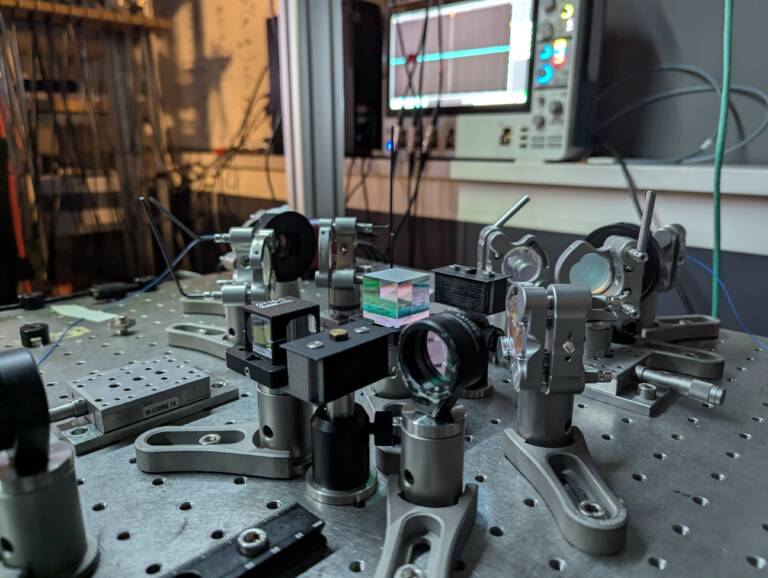
Quantum-inspired Metrology
Adapting many ideas and techniques from quantum optics to the field of imaging. We are specialised in the use of spatial-mode demultiplexing in such applications.
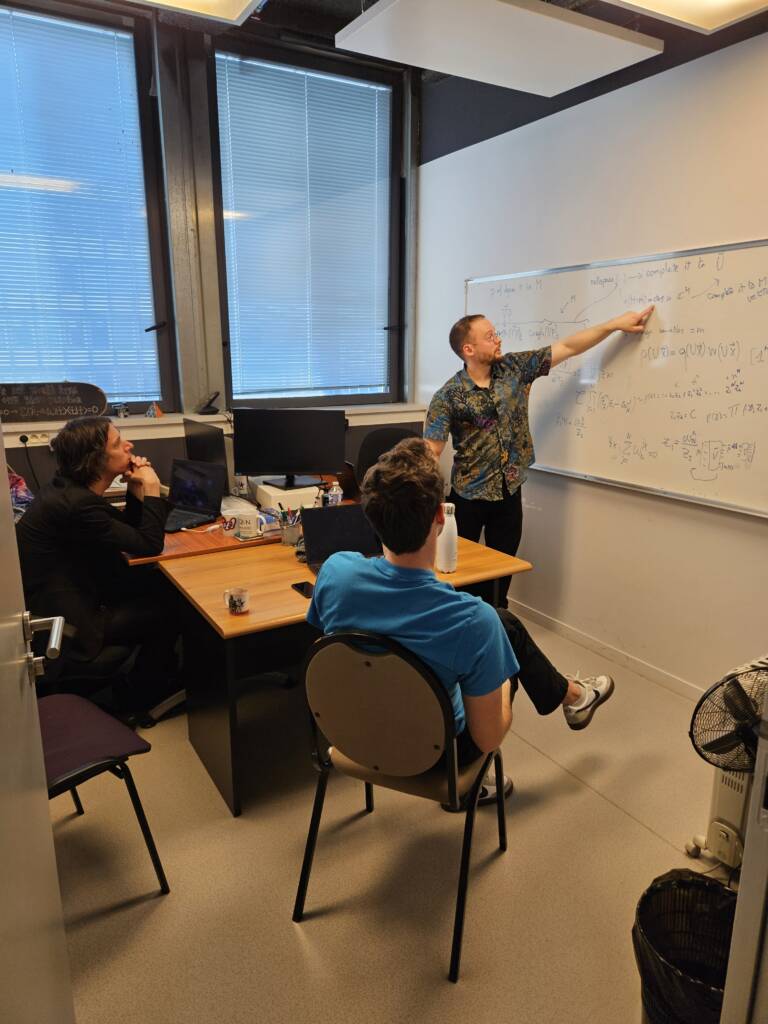
Theoretical Theory
Theoretical quantum optics and quantum information, with a strong focus on phase space representations and non-Gaussian effects.
News
Follow us on Bluesky!
More content coming soon.
The team
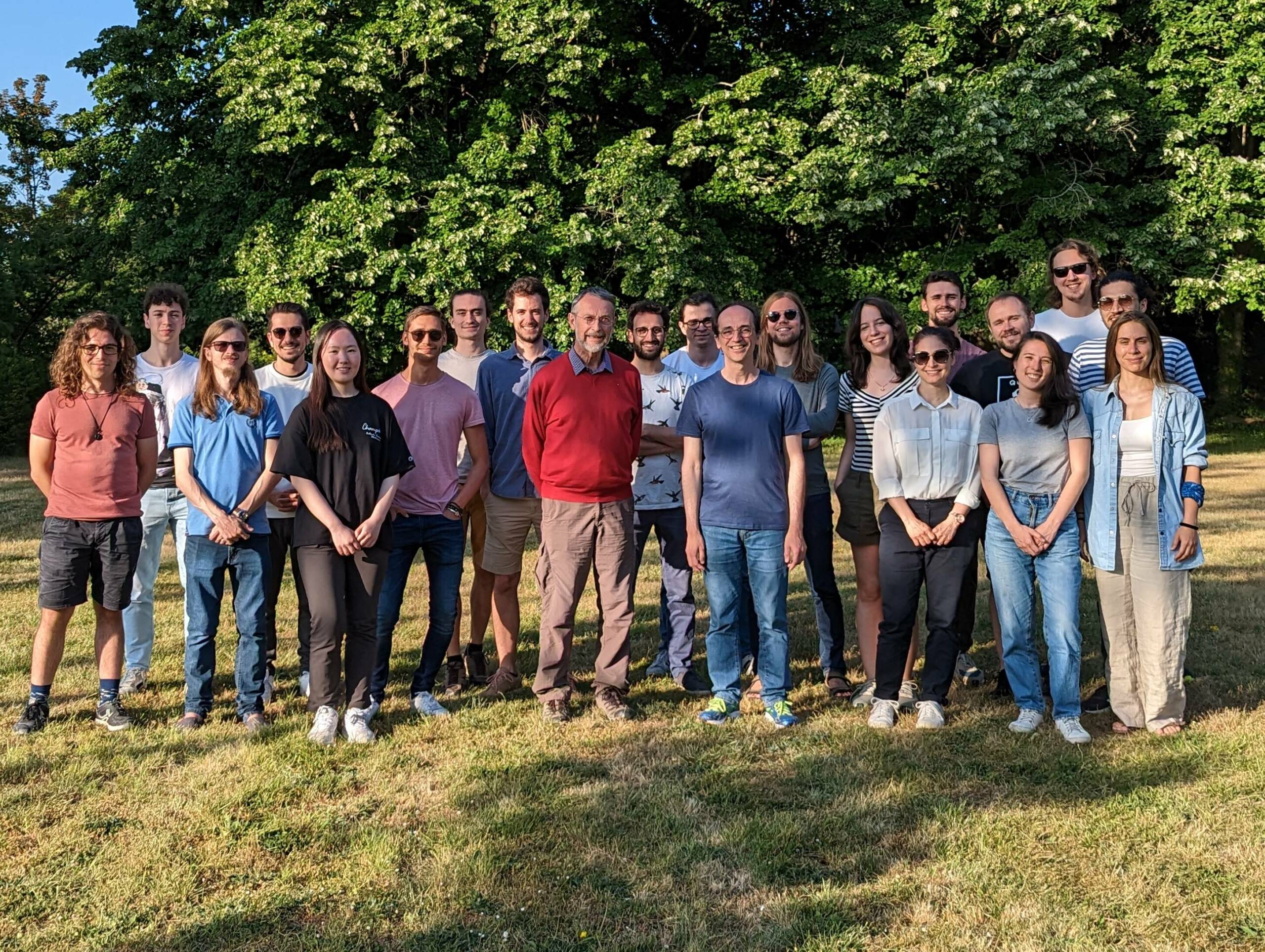
Team members
Discover who we are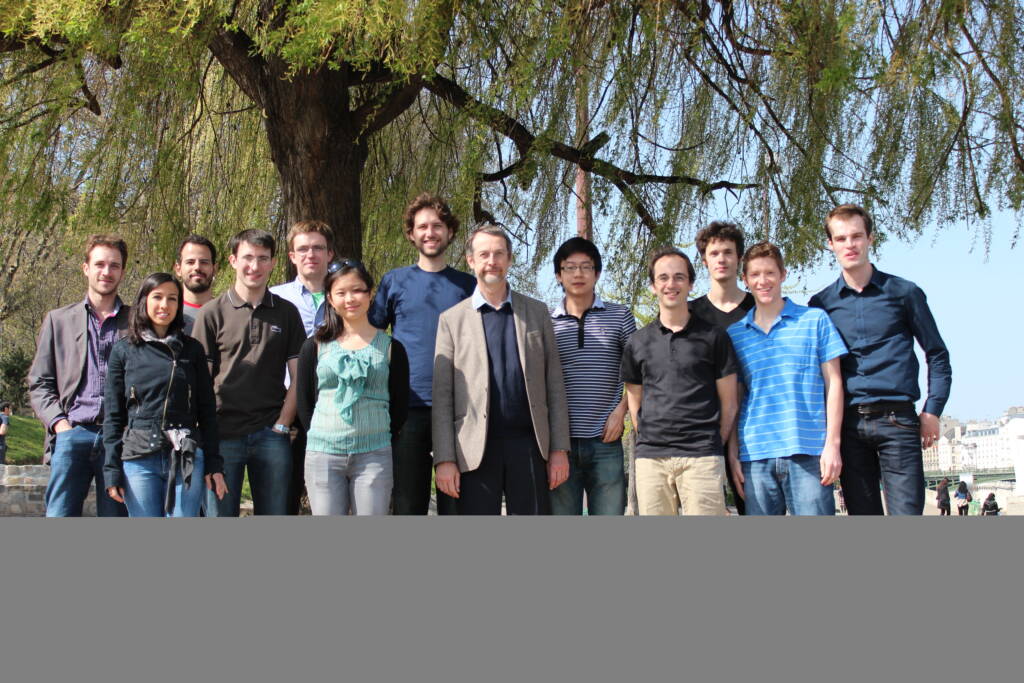
Alumni
Discover who we wereJobs
Post-doctoral positions – Experimental Continuous-Variable Gaussian & Non-Gaussian Quantum Resources
Postdoctoral positions are open at Laboratoire Kastler Brossel (LKB) in the Multimode Quantum Optics group to work on the implementation of continuous-variable platforms.
The Multimode Quantum Optics group at LKB has carried out leading research in the experimental generation of squeezed and continuous-variable entangled states for the implementation of quantum information protocols. The activities in this area range from the generation of large entangled networks multiplexed both in time and frequency [1,2,3], to the implementation and verification of non-Gaussian operations in all-optical setups [4,5] and the development of tailored CV quantum optical resources for light–matter interactions [6].
Continuous-variable encoding of quantum information allows for the deterministic generation of entangled networks, where multimode capabilities provide scalability of Gaussian quantum resources. Tailored non-Gaussian quantum operations can be implemented via heralded non-linear optical processes or through collective interactions with atomic systems.
Positions are available on several of these research topics. The experimental work will be carried out in collaboration with the in-house theoretical team, as well as with French and international consortia, including both theoretical and experimental groups, and industrial partners in the quantum sector. These collaborations will support the expansion of your scientific network and the establishment of new international partnerships.
List of current funded projects related to the proposed work:
EIC Pathfinder VeriQub (European Innovation Council): https://veriqub.eu
EIC Pathfinder PANDA (European Innovation Council): https://www.pasqal.com/fr/project-panda/
National Acceleration Strategy PEPR OQULUS:
https://www.pepr-quantique.fr/en/projet/oqulus/
[1] V. Roman-Rodriguez, D. Fainsin, G.L. Zanin, N. Treps, E. Diamanti, V. Parigi Multimode squeezed state for reconfigurable quantum networks at telecommunication wavelengths Physical Review Research 6 (4), 043113 (2024)
[2] T. Kouadou, F. Sansavini, M. Ansquer, J. Henaff, N. Treps, V. Parigi Spectrally shaped and pulse-by-pulse multiplexed multimode squeezed states of light APL Photonics 8 (2023)
[3] Y. Cai, J. Roslund, G. Ferrini, F. Arzani, X. Xu, C. Fabre, N. Treps Multimode entanglement in reconfigurable graph states using optical frequency combs Nature communications 8 (1), 15645 (2017)
[4] YS Ra, A Dufour, M Walschaers, C Jacquard, T Michel, C Fabre, N Treps Non-Gaussian quantum states of a multimode light fieldNature Physics 16 (2), 144-147 (2020)
[5] U. Chabaud, G. Roeland, M. Walschaers, F. Grosshans, V. Parigi, D. Markham, N. Treps Certification of non-Gaussian states with operational measurements PRX Quantum 2 (2), 020333 (2021)
[6] M. Moreno-Cardoner, D. Goncalves and D. E. Chang Quantum Nonlinear Optics Based on Two-Dimensional Rydberg Atom Arrays Phys. Rev. Lett. 127, 263602 (2021)
Environment
As a whole, the group has a tradition of working together with a diverse range of people from varied backgrounds. This diversity often leads to fruitful scientific input from different points of view, and it allows the group to explore new avenues. Furthermore, the moderate size of our group gives PhD students and postdocs the opportunity to discuss with PIs on a daily basis. This gives rise to a dynamical atmosphere with a lot of space for discussion.
Laboratoire Kastler Brossel is one of the main worldwide leaders in the field of fundamental physics of quantum systems, covering a number of subjects spanning from fundamental tests of quantum theory to applications. It has an internationally recognized expertise throughout its 65 years history, including three Nobel Prize winners. The multimode quantum optics team explore both fundamental science and applications in CV quantum information. Based in Sorbonne Université in the Pierre and Marie Curie Campus in the center of Paris, it is part of the Quantum Information Center (QICS) in Sorbonne, hosting both quantum physicists and computer scientists. It is also part of the Paris Centre for Quantum Technologies (PCQT), a research, training and innovation network involving 22 research laboratories in Paris Region, 35 start-ups and larger industry groups.
Practical information
Candidates must hold an internationally recognized PhD in a field related to experimental quantum physics. A good background and past research track record in experimental optics, and quantum physics is required.
Application procedure: Inquiries and applications (incl. a detailed CV and two names of potential referees) should be sent by email to Nicolas Treps (nicolas.treps@lkb.upmc.fr) and Valentina Parigi(valentina.parigi@lkb.upmc.fr).
Salary: Monthly net salary (after-tax) between 2300€ and 3000€, depending on experience
Application deadline: Preferentially apply before December 1st 2025
Starting date: flexible
Duration: up to 2 years (with possible renewal of 1 year)
